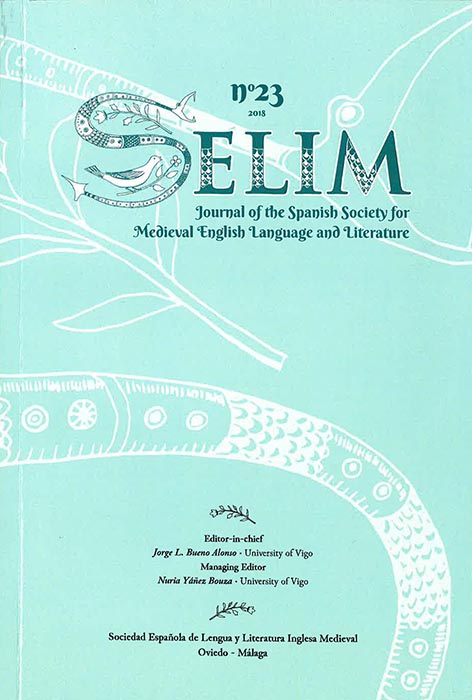Abstract
The pagan in early martyr lives is a familiar figure, and is often portrayed as an object of scorn by both the saint and the audience of the life. This article explores the ways in which the figures of the saint and pagan antagonist are translated in late Anglo-Saxon England. Ælfric’s translation of the Life of St Cecilia is examined alongside his Latin source text, discussing alterations Ælfric made concerning the portrayal of the pagan. In its focus on Ælfric’s omissions and alterations from his Latin source, this article considers whether Ælfric considered it particularly important to translate the pagan as foolish in order to guide the audience towards a correct interpretation of the events of the life. In order to identify humour in both the Latin source and Ælfric’s translation, this article engages with theories of humour, namely superiority and incongruity, discussing how the expectations of the genre make these texts particularly amenable to the application of these theories. Ultimately this article argues that humour had a serious function in hagiography.
Keywords: hagiography, Ælfric; humour theory; translation
